
Latest Coronavirus Disease COVID 19 News and Research
Children play a larger role in the community spread of COVID-19 than previously thought
In the most comprehensive study of COVID-19 pediatric patients to date, Massachusetts General Hospital (MGH) and Mass General Hospital for Children (MGHfC) researchers provide critical data showing that children play a larger role in the community spread of COVID-19 than previously thought
COVID-19 linked to type 1 diabetes and diabetic ketoacidosis in children
A team of researchers at Imperial College Healthcare NHS Trust and Imperial College London has found a link between COVID-19 and new-onset type 1 diabetes in children. The research is published in the journal Diabetes Care.
Canadian Coalition for COVID-19 releases 51 promising nanobodies
A group of Canadian companies has published 51 antibodies that show promising ability to bind the COVID-19 virus which could result in neutralizing the virus.
SARS-CoV-2 hijacks antiviral factors to promote infection in human lung cells
Now, a new study published in the preprint server bioRxiv in August 2020 shows that under conditions resembling those in vivo, IFNs may promote efficient viral invasion instead.
Lab-on-a-chip technology detects COVID-19 antibody
A robust, low-cost imaging platform utilizing lab-on-a-chip technology created by University of California, Irvine scientists may be available for rapid coronavirus diagnostic and antibody testing throughout the nation by the end of the year.
New prototype device non-invasively detects COVID-19 in exhaled breath of infected patients
Few people who have undergone nasopharyngeal swabs for coronavirus testing would describe it as a pleasant experience.
Breast milk is not a potential source of infection, indicates study
As the novel coronavirus continues to spread around the world, so do the concerns of breastfeeding mothers.Although there have been no documented cases to date of an infant contracting COVID-19 as a result of consuming infected breast milk, the critical question of whether there is potential for this form of transmission remains.
Researchers identify mechanism that explains lower-quality immune response in COVID-19 patients
The release of massive amounts of proteins called cytokines can lead to some of the most severe symptoms of COVID-19.
Could the high rate of mutations bring about SARS-CoV-2's extinction in India?
A new study published on the preprint server bioRxiv in August 2020 shows the importance of uncovering the dynamics of the virus with particular attention to geographic variation.
Fresh and frozen food can harbor SARS-CoV-2 for at least 21 days
A recent study published on the preprint server bioRxiv in August 2020 suggests that foodborne contamination may underlie these outbreaks and that this route of transmission should not be overlooked to contain the pandemic.
Genomics study shows multiple and diverse SARS-CoV-2 introductions in the US capital region
A recent study led by the researchers from Johns Hopkins University reveals multiple and diverse introductions of severe acute respiratory syndrome coronavirus 2 (SARS-CoV-2) in the United States National Capital Region during the initial phase of coronavirus disease 2019 (COVID-19) pandemic. The study is currently available on the medRxiv* preprint server.
Researchers use heparin to block co-receptor for SARS-CoV-2 infection
Researchers at the University of Amsterdam have conducted a study showing that heparan sulfate proteoglycans are important co-receptors that severe acute respiratory syndrome 2 (SARS-CoV-2) requires to infect host cells.
CUNY School of Medicine and TechnoVax announce COVID-19 vaccine breakthrough
The CUNY School of Medicine at The City College of New York and TechnoVax, Inc., a biotechnology developer of novel vaccines, announce a breakthrough in their collaborative effort to develop a vaccine for COVID-19.
Human microbiome trims mucosal glycans, influencing SARS-CoV-2 infection
An international team of researchers has conducted a study showing that differences in the human microbiome may influence the ability of severe acute respiratory syndrome coronavirus 2 (SARS-CoV-2) to infect host cells.
New 3D digital segmented models for COVID-19 diagnosis
An LSU Health New Orleans radiologist and evolutionary anatomist have teamed up to show the same techniques used for research on reptile and bird lungs can be used to help confirm the diagnosis of COVID-19 in patients.
COVID-19 patients with hypoxia respond positively to a treatment, study shows
Covid-19 patients with hypoxia respond positively to icatibant treatment, Radboud university medical center researchers wrote in JAMA Network Open.
Democratic convention, night 2: Defending the ACA and attacking Trump on pandemic
The second night of the 2020 Democratic National Convention featured a 17-person keynote speech, past presidents, a roll call vote that doubled as a virtual tour of the United States and an emphasis on health care and national security issues.
Mathematical modeling helps researchers track and tackle COVID-19 pandemic
The Editor-in-Chief Vitaly Volpert of the Institut Camille Jordan, University ofLyon, France, reviews how the public's new favourite scientific discipline, mathematical modelling, is being used to track and tackle the COVID-19 pandemic.
Study: Frailty can better predict COVID-19 survival than patient's age
New research from Karolinska Institutet shows that the degree of frailty, a measure of a person's functional level before contracting the disease, can better predict COVID-19 survival than the patient's age
Pioneering program empowers stroke survivors during COVID-19 lockdown
A pioneering program to empower people living with complex long-term conditions such as a stroke or multiple trauma manage their own rehabilitation has been kept on the road during the coronavirus pandemic – thanks to an expert from Kingston University and St George’s, University of London taking the service to online.

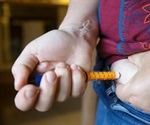
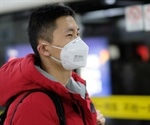
_d95b5bcc40eb4d988b4d744321f66d58-150x125.jpg)
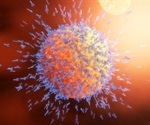
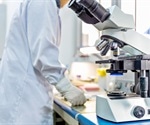
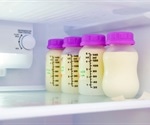
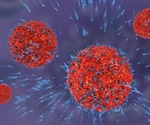
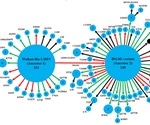
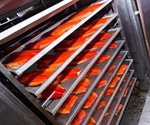
_e5085dacb4cf4edb8eb8909501102570-150x125.jpg)
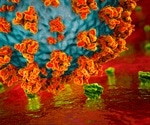
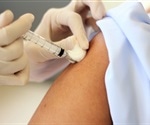
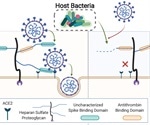
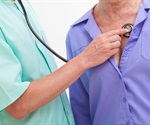
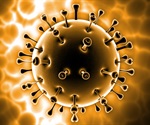
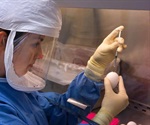



































No hay comentarios:
Publicar un comentario